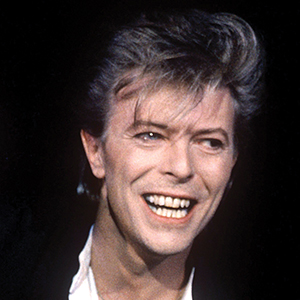Tributes to David Bowie who died on Sunday have highlighted the power of his songs, his originality and his creativity. Here Cardinal Gianfranco Ravasi, president of the Pontifical Council for Culture, finds evidence also of a struggle with faith
My memory of David Bowie arises from an effort I made long ago to uncover his secret and implicit spirituality. This was always in the background, always a preoccupation for him. Yet few realised this when he was recording Station to Station, released in 1976. In an album that reflected his darkest years Bowie, who five years previously in one of his lyrics had entrusted salvation to aliens, dedicated himself to the Stations of the Cross.
He prayed, in the depths of his addictions and lacerating questions: “Lord, I kneel and offer you my word on a wing / And I’m trying hard to fit among your scheme of things.”
But Bowie’s quest was unfinished and it did not cease to torment him, while always enriching his art. In those days – he himself told us – he wore for many years a small silver crucifix. His was a search, a questioning, that went to a greater height and plumbed a deeper mystery than any answers or responses were able to reach. So, for example, Bowie sought to understand the meaning of prayer in “Loving the Alien”, a track from the album Tonight, released in 1984. He asks if our invocations to God hid truth within them, if religion was not believing – once again – only in an alien: “And your prayers they break the sky in two / You pray ’til the break of dawn.”
The references in Bowie’s art and music to spirituality, often in anguish and torment, are more than can be counted, and were never excluded from his life. “I’m a young man at odds / With the bible / But I don’t pretend faith never works / When we’re down on our knees / Prayin’ at the bus stop,” he wrote in “Bus Stop”, one of the tracks on the album Tin Machine (1989).
The arrival of Jesus on earth left Bowie with a mix of hope and incredulity. Yet he never abandoned that part of his soul, he never ceased asking for a sign from God: “Open up your heart to me / Show me who you are / And I would be your slave ... Give me peace of mind at last / Show me all you are / Open up your heart to me” (“I Would Be Your Slave” from the album Heathen, 2002).
He played with these ideas sometimes, as when in 2003 he declared: “I am not quite an atheist and it worries me, but give me a couple of months!” He would confess, with a smile on his lips, that as the years went by his questions were fewer but deeper and more painful.
The moral tension in Bowie was vivid and once led him to say: “There’s a growth in knowledge that’s not real evolution. Ethically, humanity is not progressing. As animals we have not changed: we kill and seek to survive.”
This moral tension will certainly be present in his final album, Blackstar, released only two days before his death. I am not fully familiar with it yet, but I am sure that this great original, a leading protagonist of contemporary music, who was always on the unstable boundary between the sacred and the profane, will again speak, in his own way, of the spiritual.
Bowie’s unique voice managed – even if “laically”, in a non-churchy way – to make the souls of all those with a restless conscience vibrate.




 Loading ...
Loading ...